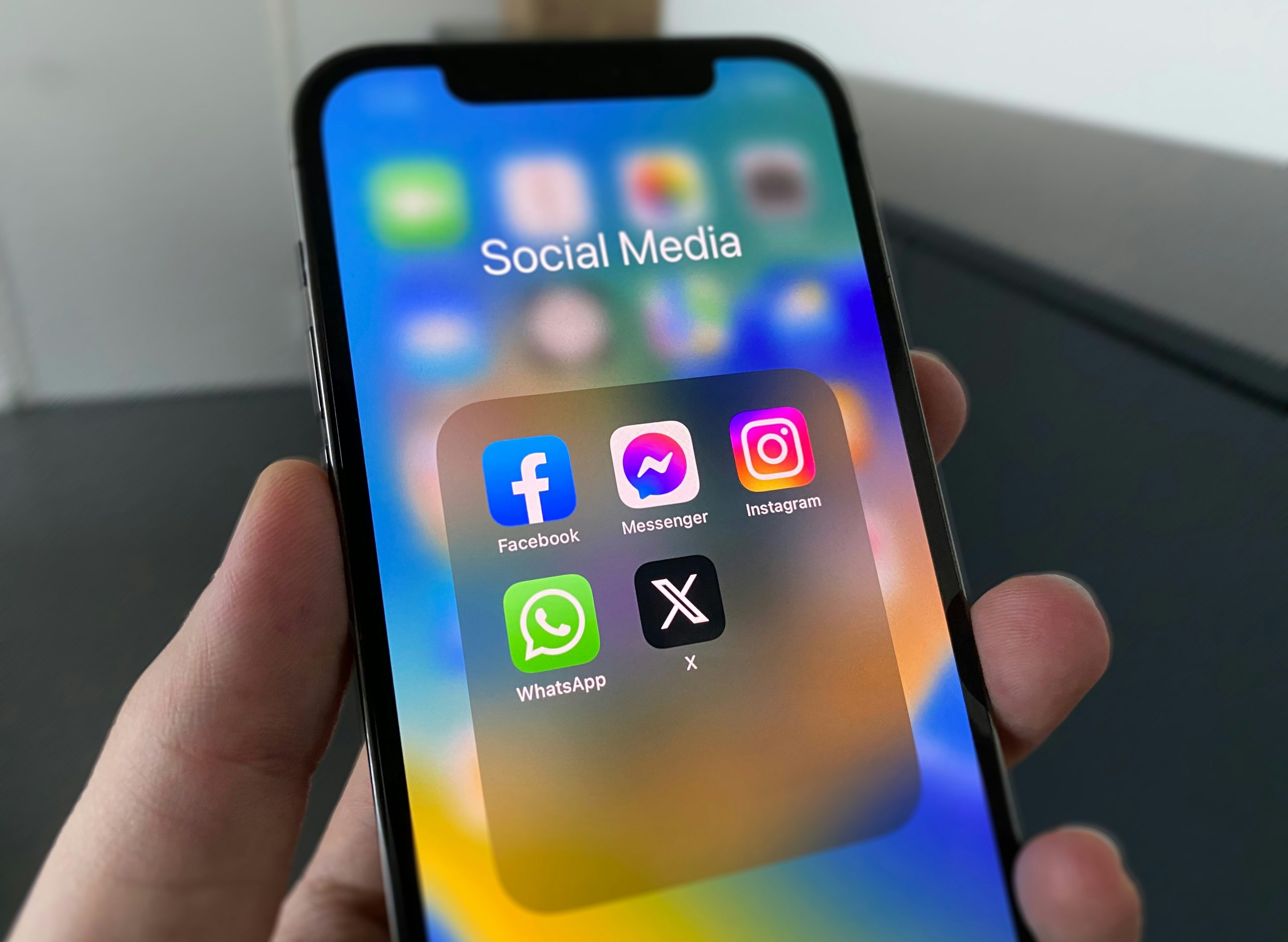Chapter 3: Artificial Intelligence: Friend or Foe?

Warm-Up Questions

- Have you heard of ChatGPT or Microsoft Copilot?
- In what ways can artificial intelligence, or AI, be helpful?
- When do you think we should be careful about using AI?
Read
Artificial intelligence (AI) can be a scary phrase to hear. For an active imagination, AI may represent killer robots and science fiction horrors; however, artificial intelligence is not something to be afraid of. In fact, it can be a very useful tool you already use in a variety of ways without even realizing it.
Almost every time you use your phone or type on a computer, artificial intelligence is involved in some way. Spell check is a form of artificial intelligence that has been around since the late 1970s. It wasn’t until the 1980s, however, that spell check was included on personal computers and allowed users to stop worrying about if they spelled something correctly. It instantly checks spelling and can even correct punctuation.

Another way AI impacts your life is with your email. Have you ever wondered how email can determine what is junk mail, spam, or important? The answer is simple; it’s with AI. If an email has been sent from somewhere that has received complaints[1], it is more likely for your email service to mark it as spam. Email services can even track which emails users don’t open, which allows AI to label those as spam in the future.

Social media also heavily relies on AI to deliver the content that users want to see straight to them. Based on the posts that users interact with by liking and sharing, social media platforms like Instagram and TikTok will adjust the feeds of those users to display more of the kinds of posts they interact with. AI helps manage social media activities, making interactions more efficient and personalized for users. Most people use social media almost every day, and without knowing it, they interact with artificial intelligence.
Recently, AI systems such as ChatGPT and Microsoft Copilot have allowed users to enter prompts and receive detailed responses on almost any subject. They have created a quick and easy way for users to come up with responses on everything from pickles to plastic surgery. What many users don’t realize, however, is that ChatGPT and Copilot are not replacements for Google. Where Google will show you many different pages and results when you search for pickles, ChatGPT or Copilot will only deliver one perspective. This limits the amount of information that is presented to users. It also prevents those using the AI from coming up with their own opinions on the subjects. That being said, using ChatGPT or Copilot can encourage creativity for a topic and help users find inspiration for starting a project.

Artificial intelligence is rapidly growing every day, and it is not limited to the uses mentioned in this article. It is something that almost every person will interact with in their day-to-day lives, helping to relieve some of the burdens we face. Still, it is not a replacement for humans. AI will never be able to match the art that we can create or the stories that we can tell. Thus, while it is something to be aware of, you don’t need to fear the robot apocalypses[2] you’ve seen in movies.
Comprehension Questions
Answer the following questions in complete sentences.
- According to the article, is artificial intelligence something we need to be worried about?
- What is an early form of AI mentioned in the article? When was it first used?
- In paragraph 5, it says that users enter prompts in ChatGPT. Explain the meaning of entering prompts in your own words.
- Name two ways that artificial intelligence is used in our everyday lives today, with examples from the article.
- How does email use AI to determine whether an email is spam or important?
- What is a disadvantage of using ChatGPT or Copilot, according to the article?
- In your opinion, is artificial intelligence a benefit to society? Why or why not? Use specific examples from your life and experience to support your answer.
- Why is artificial intelligence not a replacement for humans, despite its growth?
- In what ways do you think AI could be used in the future? Use your imagination!
Vocabulary
Adjust
Aware
Computer
Create
Display
Impact
Intelligence
Interact
Involve
Label
Perspective
Project
Rely on
Response
Topic

Vocabulary Practice
Definitions Exercise
Practise identifying the correct definition for each of the target words.
Parts of Speech Exercise
Read the sentence and guess the part of speech. Turn the card to see if you are correct.
Synonyms Exercise
Drag and drop the synonyms. There are two groups of words.
Fill in the Blanks Exercise
Write in the correct word from the word bank.
Media Attributions
- white robot near brown wall by Alex Knight is licensed under the Unsplash license.
- black laptop computer by Stephen Phillips – Hostreviews.co.uk is licensed under the Unsplash license.
- a person holding a cell phone with social media on the screen by Julian Christ is licensed under the Unsplash license.
- man in gray t-shirt playing guitar by Soundtrap is licensed under the Unsplash license.
References
Amos, Zac. (2023). AI and spam: How artificial intelligence protects your inbox. Unite AI.
Arizona State University. (2024). EdPlus Voiceover Generator [Voiceover audio generator].
Microsoft. (2023). Copilot [Large language model].
Slang. (2024, November 4). In Wikipedia.
Spell checker. (2024, October 29). In Wikipedia.
Artificial Intelligence Disclosure
- Microsoft Copilot was used as a brainstorming tool for the activities in this chapter.
- The Arizona State University EdPlus Voiceover Generator was used to create the audio recording of the reading, vocabulary words, and parts of speech exercise. Adaptations include modification of speed and/or timing, and comping of output takes.
Intelligence - view the definition in the Longman Dictionary of Contemporary English Online [New Tab]
Computer - view the definition in the Longman Dictionary of Contemporary English Online [New Tab]
Involved - view the definition in the Longman Dictionary of Contemporary English Online [New Tab]
Impact - view the definition in the Longman Dictionary of Contemporary English Online [New Tab]
Label - view the definition in the Longman Dictionary of Contemporary English Online [New Tab]
Rely on - view the definition in the Longman Dictionary of Contemporary English Online [New Tab]
Interact - view the definition in the Longman Dictionary of Contemporary English Online [New Tab]
Adjust - view the definition in the Longman Dictionary of Contemporary English Online [New Tab]
Display - view the definition in the Longman Dictionary of Contemporary English Online [New Tab]
Response - view the definition in the Longman Dictionary of Contemporary English Online [New Tab]
Create - view the definition in the Longman Dictionary of Contemporary English Online [New Tab]
Perspective - view the definition in the Longman Dictionary of Contemporary English Online [New Tab]
Topic - view the definition in the Longman Dictionary of Contemporary English Online [New Tab]
Project - view the definition in the Longman Dictionary of Contemporary English Online [New Tab]
Aware - view the definition in the Longman Dictionary of Contemporary English Online [New Tab]

